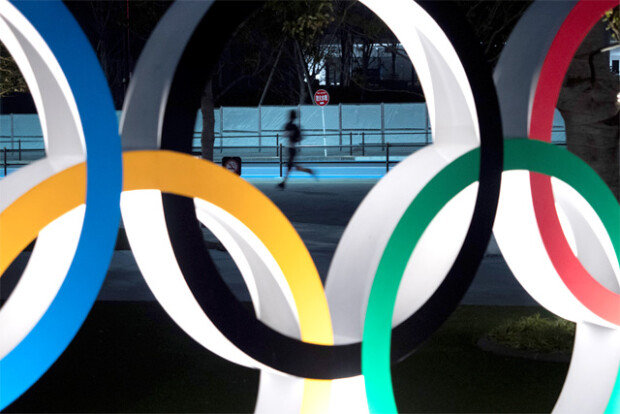Could Tokyo make it to the opening of the Olympic Games?
Could Tokyo make it to the opening of the Olympic Games?
Posted July. 24, 2020 07:51,
Updated July. 24, 2020 07:51


The Tokyo Olympic Games were originally supposed to open on Friday this year. As early as four months ago, the Japanese government and the International Olympic Committee seemed to be sure, even amid the ever worsening of the virus outbreak, that COVID-19 will go away around July while, trying to make the opening of the Olympics possible no matter what. Japan took a great deal of criticism and concern about their irresponsible moves to push the event until the nation finally decided to postpone the Olympics to July 23 next year.
That being said, there is still great uncertainty about the changed plan for next year. The number of COVID-19 confirmed cases has only been on the increase, making Wednesday see 795, or Japan’s largest daily number of confirmed cases so far. It was the first time ever in 102 days since April 11 saw 743 newly cases that Japan’s daily newly cases surpassed 700. As of Thursday, the total number of COVID-19 cases across Japan exceeded 27,000 while more than 15 million across the globe tested positive, a big leap from early March’s 100,000 or so.
Given the recent developments throughout this year, controversy over the Tokyo Olympics will repeat itself if the situations do not cool down around early March next year, just four months away the rescheduled opening time. What’s worse, there is an evident possibility that the event may be cancelled because it may be a difficult decision to make to postpone it once again due to the next Olympic events – the Beijing Winter Olympics in February 2022 and the following summer event in Paris in 2024.
It is the right thing to do for Japan to keep working hard to make the upcoming event perfect amid growing uncertainties. However, the problem is that it is going in the wrong direction. Japan’s Olympic organizing committee has announced to have the first Olympic event near the epicenter of the Fukushima nuclear disaster during the Great East Japan Earthquake in 2011. Fukushima-grown food ingredients will be cooked and served on the dining table for Olympic athletes. Japan plans to push forward with a total of 339 games, the largest number ever. The remnants of the Fukushima nuclear disaster still pose a terrible health risk to residents and visitors even today. Despite such controversy, Japan is determined to mislead the rest of the world on safety issues regarding the problematic region. Added to this, there are politically sensitive issues looming up out of the fog as Japan wants to make sure that the Rising Sun Flag, the symbol of Japanese colonialism, waves in the arenas.
The Japanese government has proudly boasted that the Tokyo Olympic Games will represent the triumph of the international community if it makes its way through the catastrophic era of COVID-19. Even if Japan makes it though, what comes next is controversy over a severe health risk that radioactive matters pose to athletes from all over the world. Then, the Tokyo Olympic Games will likely be relegated to another threat to humanity causing confusion and controversy, rather than a symbolic event that celebrates its defeat against the unprecedented health catastrophe. Just because all eyes are on Japan’s opening of the Olympics, it does not necessarily mean that it will end up with great fanfare. It is a big mistake to think that Japan will make it without winning over the hearts of participating nations and asking for their agreement.
Won-Hong Lee bluesky@donga.com







